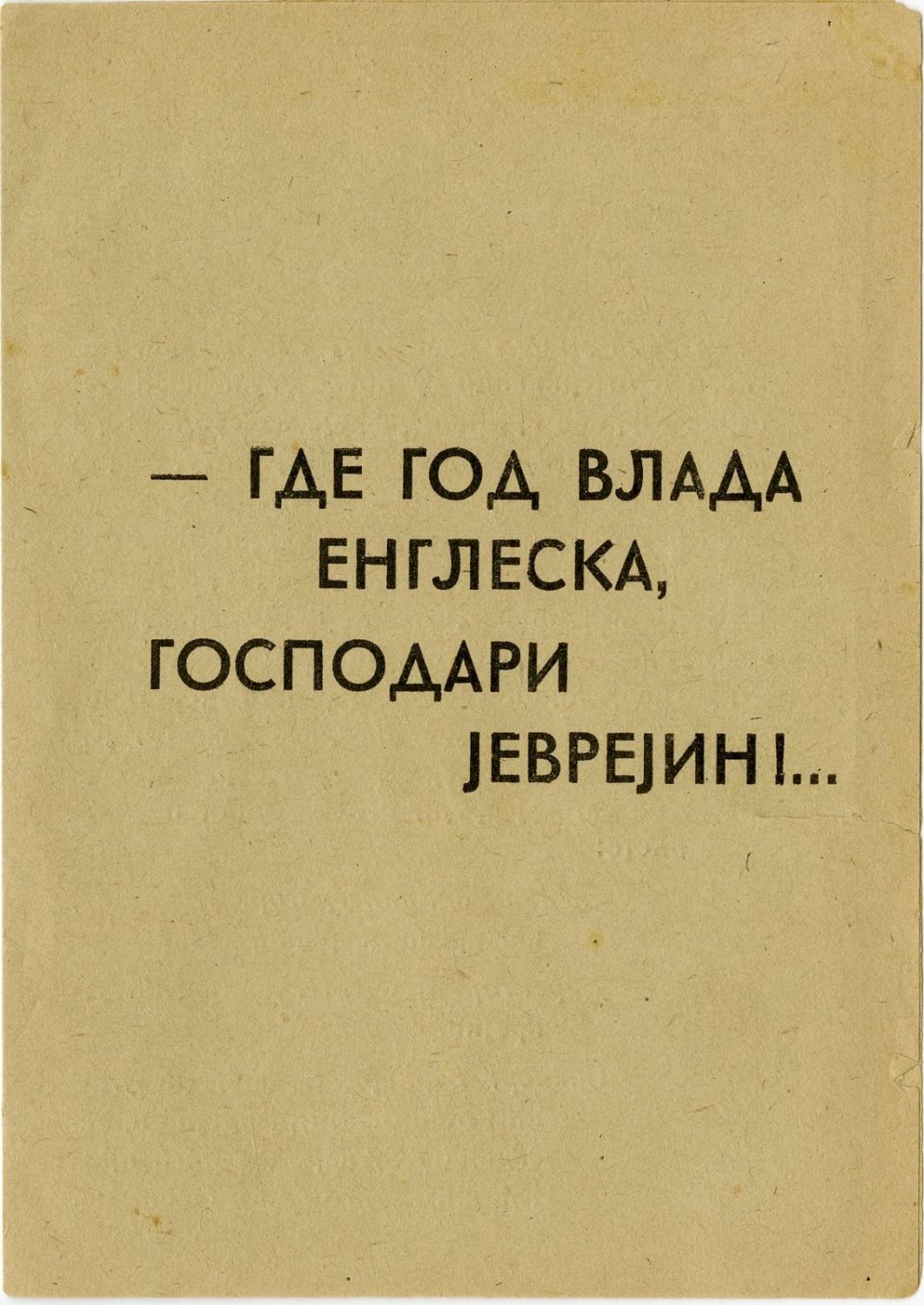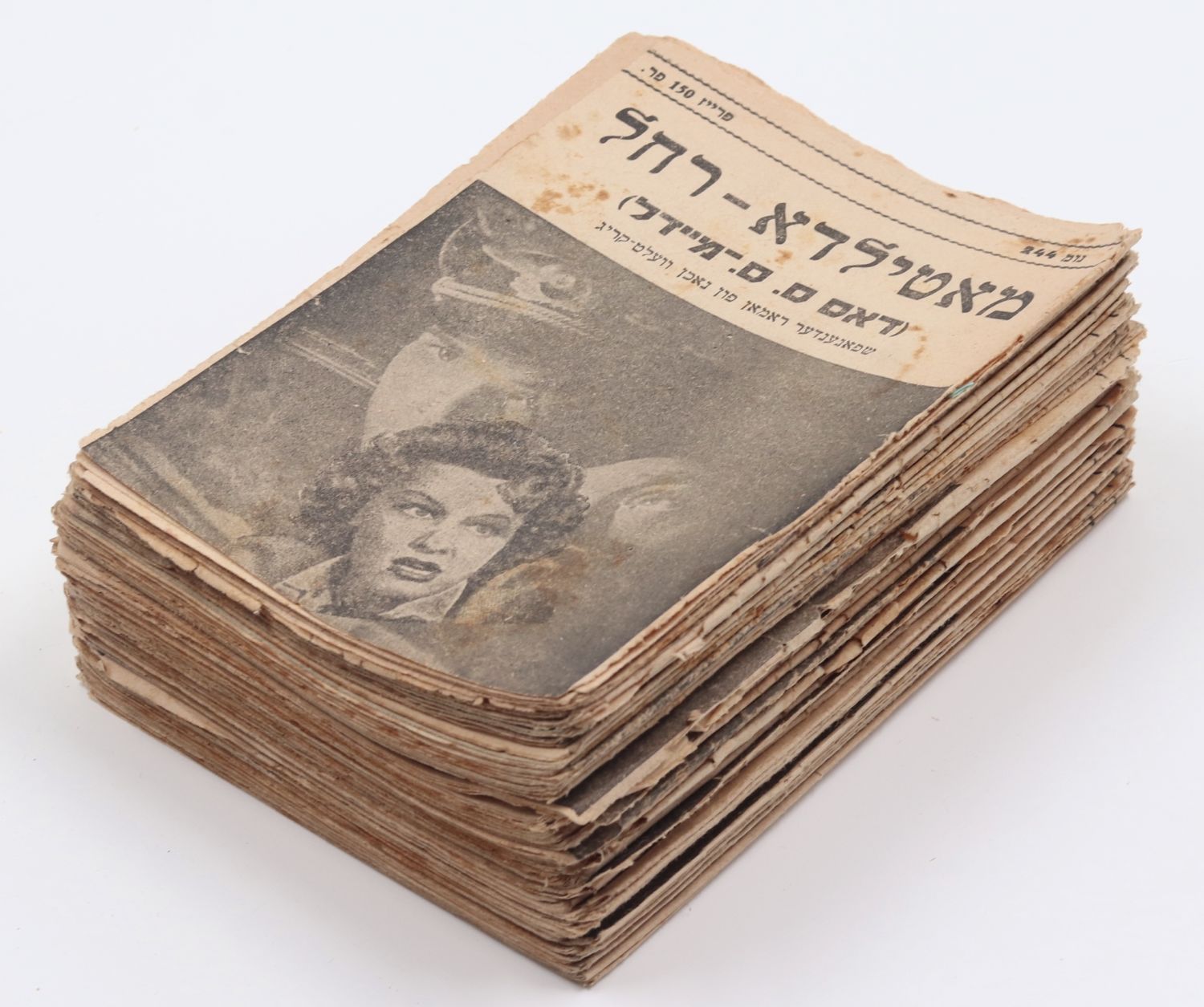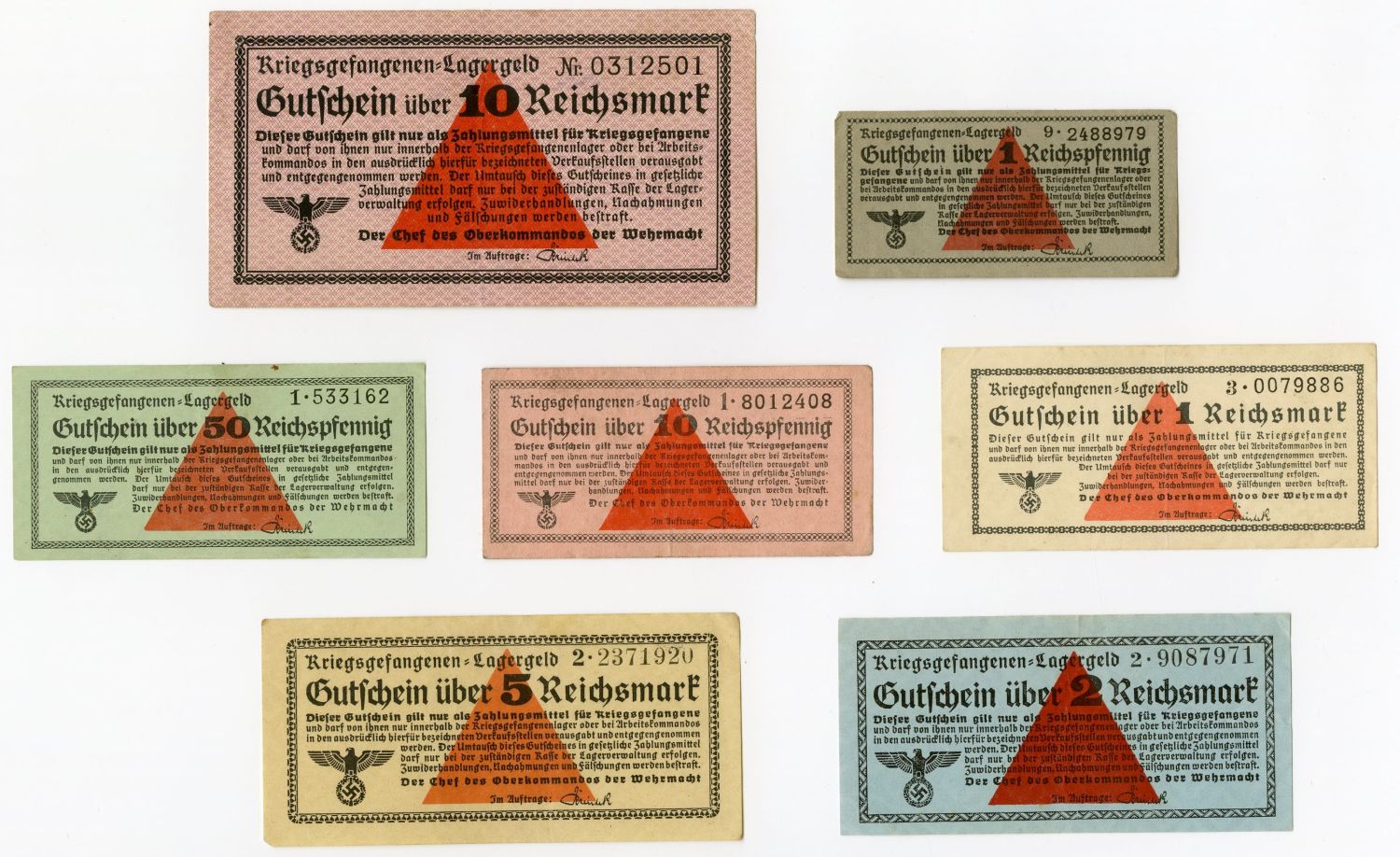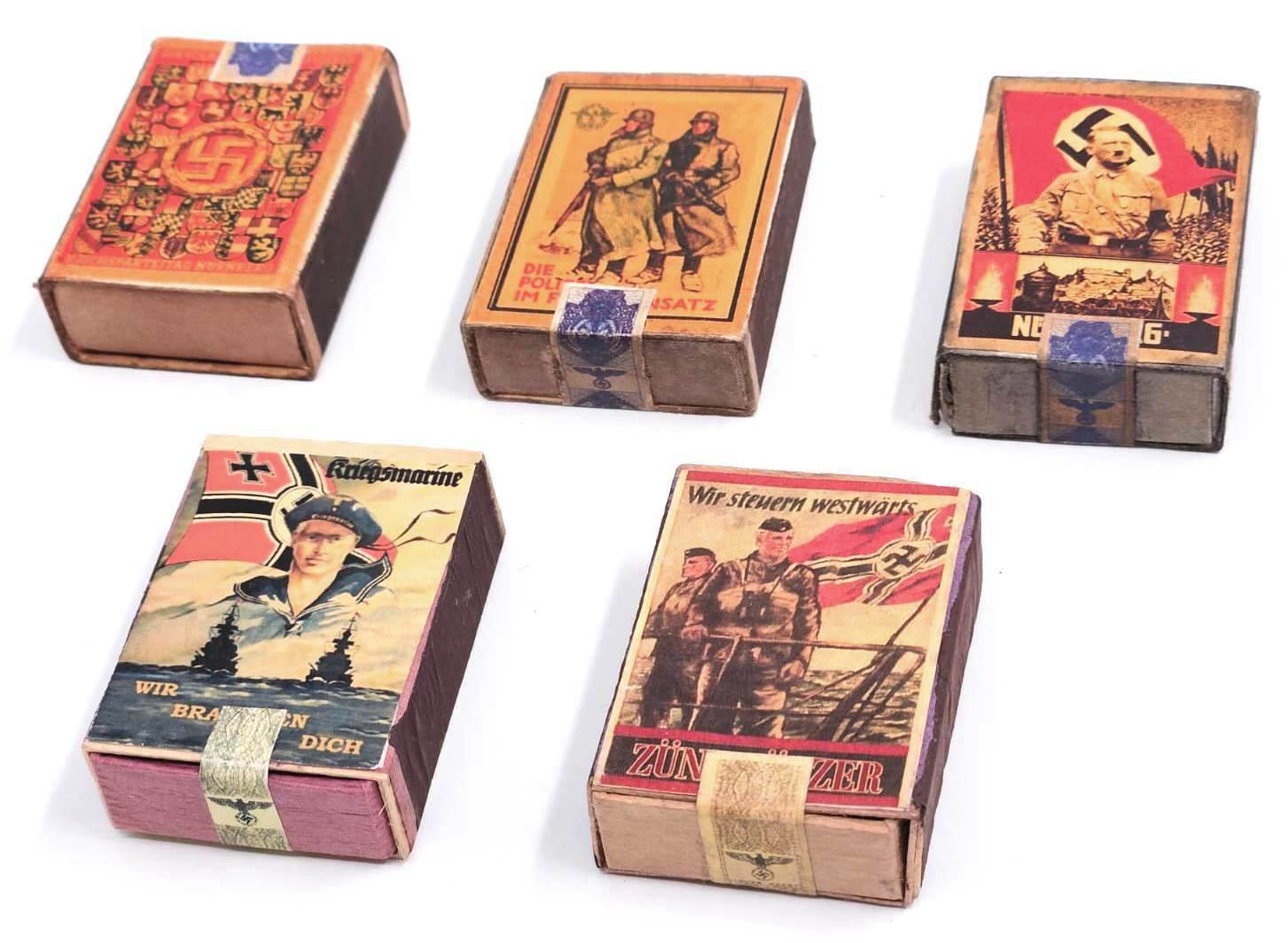Dachau: dimenticare sarebbe una colpa - 'Dachau, to forget would be a sin', A rare and early testimony by the Italian prisoner (!) Ettore Siegrist from the Dachau death camp who stayed there for seventeen months. Published by Stabilimenti grafici Federico Reale, Genoa, 1945 - First Edition. Italian.
After the author appealed to all Italian publishers to print the notebook of the manuscript he wrote during the war, the publisher Federico Reale was the only publisher who agreed to print the book and publish it. The Italian publishers all without exception refused to publish his horrifying testimony immediately after the end of the war, without even examining the manuscript and checking the content, due to pro-fascist opinions that were still prevalent in Italy, only because they knew that the writer was a former prisoner in Dachau who revealed the horrors of the camp without any censorship. Extremely rare - only one copy appears in the "world cat" library catalog in a library in France.
Ettore The author was caught in his home by Nazi soldiers on January 15, 1944 and taken for questioning on charges of anti-Nazi activity. In his home were hundreds of documents that could easily betray his underground activities, but due to the fact that he quickly stood with raised hands at the door of his house and accompanied them leaving his wife and children In the back, the Nazis did not search his house, thereby escaping an immediate death sentence. After a violent interrogation in which he was beaten until his bones were broken, he realized from the Nazis' questions that they really had no material incriminating him. After a journey of several days together with several other resistance fighters in difficult conditions and under beatings consecutively, he was brought to the Dachau camp. There, all his personal documents and belongings were taken from him, he was given a prisoner's uniform, and a prisoner number tattooed on his arm: 61943, all with the aim of obscuring his self-identity from the first day in the camp. In Dachau, he was put into Barrack No. 25 along with about 480 prisoners - into a space that could barely hold 200 people. During the months he and his friends worked in the production of aircraft parts for the German Air Force in the area adjacent to the camp. Ettore tells in detail his story in the camp during the 17 months he was imprisoned there in unimaginable conditions - the hunger, the beatings, The suffering, the dozens of deaths he witnessed every day, the freezing cold with his body in thin prisoner clothes, the diseases that raged in the camp, the menacing daily orders when a prisoner was caught without a hat he was shot on the spot, If a prisoner did not arrive at the order in time, others were executed in his place, he describes his fellow prisoners who turned into human skeletons until it was almost impossible to recognize them as he puts it: "My friends who came from workplaces in other areas of the camp, after a few months I could no longer recognize them at all..." , the humiliations when prisoners were forced to beat each other, or ride one on the other's back, and other harsh descriptions that reveal the cruelty of the Nazis that are difficult to detail here.
Ettore writes that from the day they began to notice American planes in the sky, the prisoners who were still alive received new strength, because they realized that the day of liberation was near. At the same time they heard reports that Germany had lost the armies that were deployed in the west, and there were even rumors about the liberation of France. In those months, he notes, The murders of Jews by the Nazis increased , and there were also many who died of malnutrition because the Nazis further reduced the rations given to the prisoners. Until that time the executions were carried out by firing squad in the clearing next to the crematorium, but from that time the Nazis began executions by hanging when the other prisoners were forced to watch the death row in order to shock them. The punishments were mainly for sabotage attempts made by the prisoners. At the same time, he met in the camp a Jew born in Rome who at some point came to Warsaw and told him about what the Germans had done to the Jews of Warsaw, the Jew told him that countless times he had thought of throwing himself on the electrified wire fence, because for him and for most of the prisoners of the camp, death was considered liberation, but he did not do so Because he was thinking about his son whom he expected to meet at the end of the war.
The last chapter entitled: "The Nazi regime is dead" describes the last weeks in the camp. One morning when they returned to the camp from work, the prisoners noticed a fire rising from several places in the camp, they soon realized that the Nazis had burned all the documents to destroy evidence and were happy that liberation was probably near. At the same time, the air attacks of the Americans and the British increased, and many of the Nazi commanders simply ran away and disappeared. He describes how the next day when they arrived at the workplace, the same capo who gave them orders every day simply did not show up. The prisoners sat without doing anything, not believing the situation they are in, where is the commander?. After a few hours, they noticed Red Cross trucks approaching the camp, and realized that the long-awaited end had come. On April 24, they noticed trucks loaded with bread near the camp. And here he tells an amazing story about the trick the Nazis did when they already realized that the end was near: a group of Jews was brought to the camp by the Nazis the day before in normal clothes and in relatively healthy bodies, in order to mislead the Red Cross people, as if all the stories about starvation, etc. that the Nazis inflicted to the Jews are lie. Some of the camp commanders who were hiding wore the prisoners' own clothes to disguise the fact that they were Germans, he saw how the commanders who abused him and his friends for several months were now hiding from the threat of the allied forces, the prisoners in response pointed to them and directed the allied forces to capture them.
After the Americans took over the camp, there was an immediate improvement in food, the camp was fully disinfected, the barracks were evacuated, and the blocks were distributed to outside hospitals. "Only those who have been imprisoned for a long time can understand the immense joy of returning to our home... At home we found ourselves facing the terrible problems of the post-war period... A ruined economy, ruins and ruins of every kind and form, moral and material...".
In the last pages, Ettore describes the suffering and torture he and his fellow prisoners went through in the sentences "we will remember", where each memory is dedicated to a different injustice: "we will remember that when we were tired, exhausted and exhausted, and we were looking for some relief... we were prepared mercilessly..., we will remember that in very cold temperatures, In violent floods or blizzards we were forced to stand bareheaded... We will remember that we were forbidden to correspond with our families... We will remember the terrible hunger that tormented us, crushed us, tortured us, and under the strain of twelve and thirteen hours of intense work that felled and killed many of our friends ...".
At the beginning of the book is a photo of the author before his arrest, and another photo about a month after he was released by the Americans - After a whole month of a healthy diet you can still see his lean body. as well as other difficult photographs of the camp prisoners in the book.
Testimonies of Italian prisoners from the Dachau camp are extremely rare, as there were not many of them (during the war years Italy collaborated with Nazi Germany, and so did the Italian population). Only one copy appears in the world library catalog "world cat". It does not appear in the National Library.
165 [3] p. The top corner of the first few pages has been cut off with no text damage. Some pages have stains. condition good - moderate.













